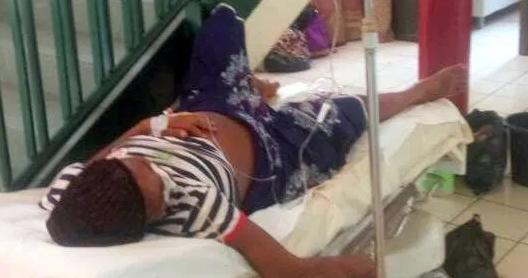The new international day is part of the strategies to call the attention of the government and policymakers across the world to making healthcare safer. This year is the first edition and the theme is “patient safety: a global priority.
The UN agency said the safety of patients during the period of providing them health services is something that should not be taken for granted. It said most patients die avoidable deaths.
The Director-General WHO, Tedros Gherbreyesus, in a statement to commemorate the day said no one should be harmed while receiving healthcare. He said, globally, at least five patients die every minute because of unsafe care.
“We need a patient safety culture that promotes partnership with patients, encourages reporting and learning from errors, and creates a blame-free environment where health workers are empowered and trained to reduce errors,” he said.
Often times, most detrimental errors are related to wrong diagnosis, prescription and the use of medicines.
WHO said medication errors alone cost an estimated $ 42 billion annually while unsafe surgical care procedures cause complications in up to 25 percent of patients resulting in one million deaths during or immediately after surgery annually.
Also, WHO Regional Director for Africa, Matshidiso Moeti, said patient harm is unacceptable “that is why the UN health agency is calling for urgent action by countries around the world to reduce patient harm in healthcare”.
Ms Moeti, who was represented by the WHO officer in Nigeria, Clement Peter, said patient safety and quality of care are essential for delivering effective health services and achieving universal health coverage.
She said many factors, such as lack of national policies, standards, ineffective implementation of policies, lack of human resources, weak healthcare systems, and poor management, among others hinders patient’s safety in the region.
“We cannot talk about patient safety if the health system is bad. It is important that hospitals are not death traps but a place where people can access the services they deserve,” she said
Nigerian situation
Although Nigeria has laws to protect the right of Nigerians and patients in the hospital, they have not been fully implemented.
Also, health care providers and patients are not aware of the rights.
Also, the National Health Act- which contains the Nigeria Patients’ Bill of Right (PBoR) gives further protection to the patient by binding the healthcare provider to provide quality care by ensuring the minimize risk and harm to patients.
Unfortunately, all of these laws have not been functional due to lack of administrative will to implement, poor human resources in the health sector, lack standardized health system and poor health care facilities.
Promise
The minister for health, Osagie Ehanire, in his speech to commemorate the day, said patient safety practice in Nigerian health facilities is widely believed to be below standard.
Mr Ehanire said every person who seeks help for their health deserves to be treated with full dignity and respect.
He said that the underlying causes of poor safety practice include lack of training and capacity among health workers, lack of clarity on standard and protocol, shortage of supplies and equipment, “which leads to the re-use of otherwise disposables materials, poor implementation of guidelines where they exist among others”.
He urged all partners in the health sector to support the government’s effort in mainstreaming quality health services.
Source: Premiumtimes

 The World Health Organisation has said four out of ten patients are ‘harmed’ during the process of seeking medical care. Many of these injuries can be prevented through quality healthcare services, it noted.
The World Health Organisation has said four out of ten patients are ‘harmed’ during the process of seeking medical care. Many of these injuries can be prevented through quality healthcare services, it noted.




